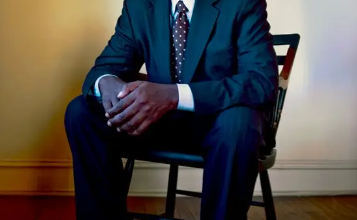Zulu Nation in Turmoil: Legal Battle Casts Doubt on King Misuzulu’s Reign

The Zulu nation, one of South Africa’s most influential traditional monarchies, is currently facing a period of uncertainty following a high court ruling that deemed the state’s recognition of King Misuzulu Zulu as “unlawful”. This ruling has reopened old succession wounds and highlighted issues in handling the country’s traditional customs.
Background of the Dispute
Misuzulu Zulu, 49, ascended to the throne after the death of his father, King Goodwill Zwelithini, who ruled the Zulu nation for 52 years. His coronation was marred by a bitter feud between rival claimants, which delayed the official recognition until October last year. However, this recognition has now been challenged legally.
The Court’s Decision
The Pretoria high court’s ruling came after a challenge by Prince Simakade, the king’s older brother and the late king’s eldest son, born out of wedlock. The court ordered South African President Cyril Ramaphosa to initiate an investigation into whether Misuzulu Zulu’s accession complied with customary laws. The judgment has stunned both the president and the Zulu monarch.
Implications of the Ruling
This unprecedented court ruling raises questions about the future of the Zulu monarchy. Experts are divided on the impact of the ruling. Some argue that the AmaZulu nation currently has no king as state recognition is necessary according to the law. Others, however, maintain that Misuzulu Zulu remains the king, as all traditional processes were observed before his recognition by the president.
The Cultural and Financial Stakes
The Zulu monarch, while not having executive powers, holds significant moral authority and manages nearly 30,000 square kilometers of land, about the size of Belgium. This land, managed by the Ingonyama Trust, provides substantial revenues. The royal family’s status and the associated financial benefits add complexity to the succession battle.
The Cultural Perspective
The case highlights the challenges in applying modern legal frameworks to traditional customs. South Africa’s failure to properly integrate customary laws into the modern judicial system since democracy in 1994 has left many unresolved issues. The Zulu succession is seen by some experts as being misinterpreted through a Western lens, contrasting with the unique cultural context of Zulu traditions.
Moving Forward
Both the state and the monarch’s office are currently studying the judgment to determine the way forward. This situation, involving not only the individuals but also various interests behind them, is likely to escalate, given what’s at stake.
This legal battle and the ensuing uncertainty mark a significant moment in the history of the Zulu nation and could become a case study for how the government might address similar customary issues in the future.





